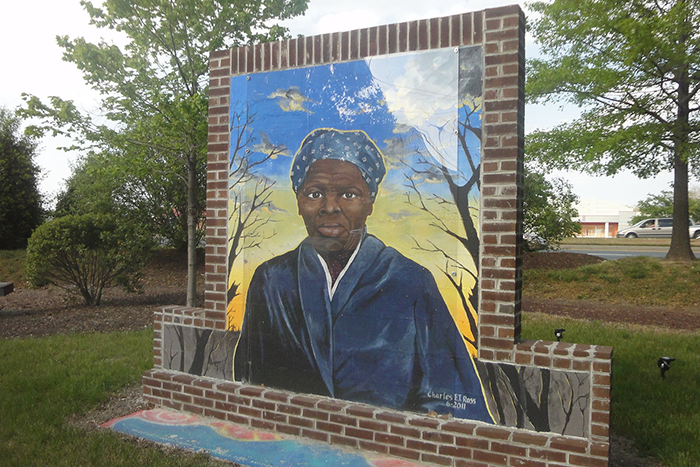
This piece follows up an earlier post about National Disability Employment Awareness Month. During National Disability Employment Awareness Month, the RAC is highlighting prominent people with disabilities (PWD), showing that PWDs deserve the same employment opportunities as able-bodied people.
U.S. Senator Bob Dole
The late former U.S. Senator Bob Dole (R-KS) endured disabilities from combat in World War II in Italy. A flying shrapnel severely damaged his right shoulder and arm and broke bones in his neck and spine. His war wounds left him without feeling in his right hand and arm and a partially numb left hand.
Dole's disability spurred him to be a strong disability advocate during his storied public service career, which included eight years as a U.S. Representative and 27 years as a U.S. Senator. Dole chaired the U.S. Senate Finance Committee and was Republican leader for more than a decade. During his first U.S. Senate Floor speech on April 14, 1969 (24 years after he was wounded), Dole called for improvements to the lives of Americans with disabilities. As a U.S. Senator, Dole was instrumental with the Americans with Disabilities Act (ADA), which Dole viewed as one of his biggest legislative accomplishments. This act tried to help PWD regarding access to civil rights protections, employment, transportation, and public areas. Dole helped make the bill be more acceptable to Republicans, and he also helped sell the bill to businesses. According to several advocates, without Dole, the ADA might not be law. After leaving the U.S. Senate, he successfully advocated for the passage of the United Nations Convention on the Rights of Persons With Disabilities. Outside the U.S. Senate, in 1989, he founded the Dole Foundation, which assists PWD find jobs.
Dole was prominent in other major ways. He was the Republican Vice Presidential nominee in 1976 and the Republican Presidential nominee in 1996. He later received a Presidential Medal of Freedom from U.S. President Bill Clinton, who defeated Dole in the 1996 presidential elections.
Harriet Tubman
The deceased Underground Railroad "conductor," civil rights activist and "Moses of her people," Harriet Tubman acquired an invisible disability when she was 12 years old. When she was shopping, she saw an enslaved teenager attempting to escape. That teenager's enslaver tried to stop that teenager by throwing a two-pound weight, which instead hit Tubman. That weight caused life-long major headaches and seizures for her. Despite this disability that many are not aware of, she led hundreds of people to freedom and helped the Union Army during the Civil War.
Marlee Matlin
Actress Marlee Matlin is deaf, having lost nearly all of her hearing at 18 months old from illness and high fevers. At seven years old, Matlin began acting while playing Dorothy in the production of The Wizard of Oz at the then-The Center on Deafness, where deaf and hearing children participated in programs. Her acting in movies and television shows (including "The West Wing" and "Seinfeld") raised awareness of deafness, as she has played some deaf characters and won major awards.
Authentic representation of people with disabilities on screen can change how the public thinks about and values PWD. In 1987, Matlin became the first Deaf actor to win an Oscar when she won the Best Actress Oscar for her portrayal of a deaf custodian in Children of a Lesser G-d. Her Oscar gave her power; as she notes, "There were certain moments in my career that I realized, OK, the power that I have, the access to the public's attention that I have, is a result of who I am and the Oscar that I won. So why not take advantage of it?"
Matlin assisted with and acted in CODA, which won the Oscar for Best Picture and other Oscars in 2022. She almost left when the filmmakers wanted a hearing actor to play the character who was eventually acted by Troy Kotsur who is deaf and won the Oscar for Best Supporting Actor for this role. She wanted a deaf actor for this character, saying,
First of all, it's not authentic. Second, those of us in the deaf community would never believe it. If you're going to tell our story, you need to have members of our community tell it. And who better than probably the best actor that I know of in our community, who comes from theater, Troy Kotsur.
Matlin's career inspires students, who realize that they also do not have limited options. Matlin also used her celebrity to promote public policies that would improve the lives of people, including some individuals with disabilities. In 1995, she testified to Congress to assist with passing a bill that requires televisions of at least 13 inches to have closed captioning.
Leviticus 19:14 teaches the importance of accessibility and inclusion for people with disabilities: "You shall not insult the deaf, or place a stumbling block before the blind." When barriers to participation are eliminated, PWD feel more welcome and have a greater sense of belonging. To help mark National Disability Employment Awareness Month, check out the RAC's resources on disability inclusion in the Jewish community, including the resources contained in the RAC's guide to observe Jewish Disability Awareness, Acceptance, and Inclusion Month (which we celebrate in February). Help make your congregation more accessible to people with disabilities and support initiatives to increase employment for people with disabilities.
Related Posts

Announcing Jewish Disability Advocacy Day 2024: Ensuring We All Flourish!

Celebrating National Disability Employment Awareness Month 2023: Role Models with Disabilities

